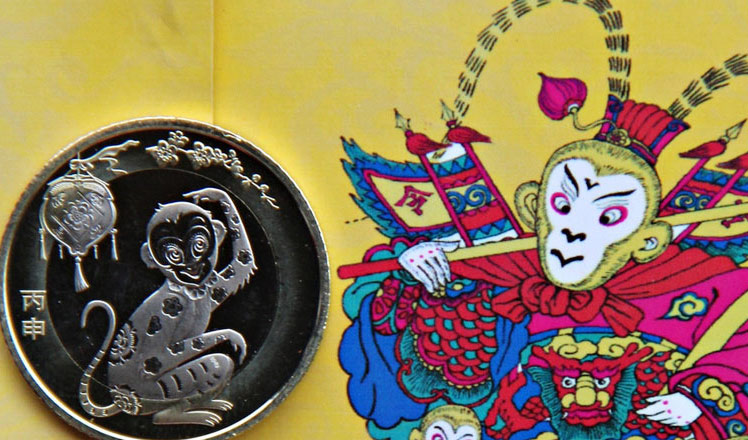When an author puts his sanity on the line
Updated: 2016-01-20 07:45
By Yang Yang(China Daily)
|
||||||||
Do rocks have life and intelligence? Do we live in two worlds - one when we dream and another when we wake up? Do we really exist or are we just characters in a novel?
In his best-selling book Tiancai Zai Zuo, Fengzi Zai You (Half Genius, Half Lunatic), Gao Ming interviews psychotics and other "unusual" people to find different perspectives to understand the world.
"After I read these stories, I dared not sleep, because I was afraid that once I fell asleep I would enter another world," says John Lin, 32, a Hong Kong-based journalist.
The blurb on the first edition of the book reads: "Don't see yourself as a character in the dialogues. But when one wakes up from a vivid dream, he or she might be confused about which world is the real one, just like the plot in the Hollywood movie Inception."
One may feel "maybe I am also abnormal", but "why should we be normal?" 41-year-old Gao asks, and "what on Earth is normal, and what is abnormal - there is no clear demarcation line".
In January, the second edition of the book comes out. Ten stories have been added to the original 40, making his project complete, he says.
In 2003, Gao was a manager with a video-production company. He knew a psychiatrist and during dinners with her, her friends and colleagues, he heard a lot of interesting stories, which inspired him.
"I was curious. I wanted to meet them, talk to them, understand how they looked at the world," he says.
One of the psychiatrists then introduced him to a patient after seeking permission from the guardians.
"I was so nervous. I could barely speak clearly, and stuttered all the time. It was cold but I sweated heavily, soaking my thermal underwear. I just gave up," he says of the meeting.
Gao then forgot about the project until his psychiatrist friend asked him whether he wanted to meet another patient.
"On the night before I went to meet the other patient, I was thinking about one thing: Communication fails typically not because of the other side, but because we in many cases already have a prejudice about the other side."
When he met the patient, Gao's first response was to ask him how he was, just as he would greet others in the street.
"Many people would say' You know I am ...' They knew they were not normal and usually smiled a little bit when they said that, which made me sad," he says.
But not all his interviewees were patients in asylums. "Patients in asylums made up only 10 percent of my interviewees. Most of the patients lived at home and the others are what we call 'unusual' people. They just see the world differently. I still keep contact with some of them," he says.
Gao talked to more than 100 patients and "unusual" people in cities across the country from 2003 to 2008.
Sometimes he went to those cities on business trips, but in many cases he went specially to visit his interviewees.
In early 2008, after about 200 interviews, Gao had a feeling of "fullness". He stopped the project and went back to his normal life.
In 2009, after three exhausting months of his regular job, Gao took a vacation.
"I didn't feel relaxed after a month's vacation. My brain was working at a high speed. I wanted to do something, and it was the time," he says.
At 2:30 am on Aug 17, Gao typed the first character on the Tianya Forum online, and in 38 days 220,000 characters had been typed.
"I didn't find similar stories on the forum, so I just posted them under the category of 'ghost' stories. I did not care whether readers would believe them or not," he says.
The stories were very popular, and soon more than 20 publishers came to him to talk about compiling them into a book. In 2010, the first edition of the book came out and about 2 million copies have been sold so far, according to OpenBook, an industry-data provider.
Some people question whether his stories are true and whether they violate people's privacy.
"I asked permission from the guardians, and many of the patients were conscious of their situation. I didn't mention any names or backgrounds. And I just wrote down dialogues that I think are inspiring, and sometimes if I found two or three interviewees talking in a similar fashion, I combined their stories into one, like in the case of the boy talking about four dimensional spaces," he says.
The 10 new stories in the second edition were already on Tianya.
"I didn't understand many things six years ago when I wrote the stories."
But now, after many other experiences: "I can understand what they meant by the universe with Eight Diagrams (for practicing divination)".
"You can see how colorful the world is when you see it from a different perspective. I hope readers will give up their prejudices about the world and embrace it with an open heart after reading my stories," he says.

(China Daily 01/20/2016 page20)

 Glenn Frey, founding member of the Eagles, dead at 67
Glenn Frey, founding member of the Eagles, dead at 67
 Glass bridge across Zhangjiajie Grand Canyon under construction
Glass bridge across Zhangjiajie Grand Canyon under construction
 The life of a wood carving artist
The life of a wood carving artist
 Top 10 satisfying cities of China in 2015
Top 10 satisfying cities of China in 2015
 Square dance lovers find underground garage their new stage
Square dance lovers find underground garage their new stage
 The world in photos: Jan 11 - 17
The world in photos: Jan 11 - 17
 Commemorative coins for Year of Monkey issued across China
Commemorative coins for Year of Monkey issued across China
 Throw a flower ball to find Mr Right
Throw a flower ball to find Mr Right
Most Viewed
Editor's Picks

|

|

|

|

|

|
Today's Top News
National Art Museum showing 400 puppets in new exhibition
Finest Chinese porcelains expected to fetch over $28 million
Monkey portraits by Chinese ink painting masters
Beijing's movie fans in for new experience
Obama to deliver final State of the Union speech
Shooting rampage at US social services agency leaves 14 dead
Chinese bargain hunters are changing the retail game
Chinese president arrives in Turkey for G20 summit
US Weekly

|

|







